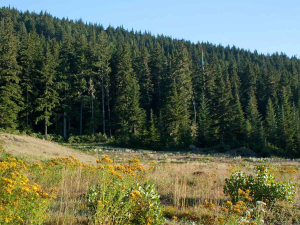Alliance commissions major heat pump system at Mataura, cutting coal use and emissions
Alliance Group has commissioned a new heat pump system at its Mataura processing plant in Southland.
 If fossil fuel emissions keep up at the same rate in this country, we won't be able to reach our binding emissions targets for 2030 without planting more trees
If fossil fuel emissions keep up at the same rate in this country, we won't be able to reach our binding emissions targets for 2030 without planting more trees
OPINION: Most people will be aware of the Government's plans to boost coal, oil and gas production to meet energy requirements.
Whatever your stance on the short-term efficacy of renewable sources and developments, it's worth noting a major reason for afforestation in New Zealand right now is offsetting emissions produced from fossil fuels.
Recent statistics show Kiwi farmers doing an admirable job of reducing their on-farm emissions, but the point of diminishing returns has already easily been reached.
If fossil fuel emissions keep up at the same rate in this country, we won't be able to reach our binding emissions targets for 2030 without - you guessed it - planting more trees. Where are these trees planted? Productive farming land. Who bears the cost of this conversion? Hard working Kiwi farmers.
The Government has two stances on this topic. One, increased domestic fossil fuel production will reduce reliance on imports, cutting down on transport costs and emissions and theoretically have a net reduction in emissions despite identical consumption rates.
Secondly, renewable sources are not developed enough to cover surges in electricity usage or convert our primarily petrol-powered transport fleet.
For all the publicity about the necessity of expanding fossil fuel production because renewables cannot supply 100% of the country 100% of the time, there seems to be much less government discussion about fixing or expanding the renewable energy grid in the first place.
Is there some discussion on this long-term plan? Certainly. Is it being given the same priority as the quick band-aid fix that may be shafting Kiwi farmers long-term? No.
Sadly, there is no easy solution. Any reasonable discussion will need to accept that someone, something, somewhere, is going to get a bum deal. Whether New Zealand will have to deal with reduced primary production, spottier energy supplies or a less green country is a bullet we must bite.
The question is, who should put the bell on the cat?
Horticulture New Zealand (HortNZ) has added its perspective to numerous primary sector voices urging the Government to strengthen its draft legislation to replace the Resource Management Act (RMA).
The Commerce Commission has finalised new information disclosure requirements for local councils and water organisations that deliver water supply and wastewater services.
Beef + Lamb NZ (B+LNZ) is calling for significant changes to the Government’s reforms to the Resource Management Act (RMA).
NZPork says the Government needs to strengthen its proposed planning laws to ensure New Zealand's pig farmers can continue to produce pork.
Good news for kiwifruit growers - a record crop with forecast per hectare returns at record levels for all fruit categories for the 2025-26 season.
As guests gathered on what is known as the Speaker's Lawn - a beautifully manicured patch of grass behind the main buildings of Parliament - to mingle and enjoy a lamb chop to celebrate National Lamb Day, the mood was very much upbeat.

OPINION: The proverbial has really hit the fan in Wellington and exposed a glaring example of a double standard in…
OPINION: Dark suited spin doctors exist to, well, spin, and the nice cuddly progressive types at Greenpeace Aotearoa practice this…